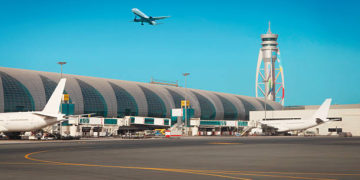Grocery analysts have predicted that food prices will rise sharply this summer due to increasing prices.
The Institute of Grocery Distribution (IGD) said prices would rise at a rate of 15% as households pay more for staples such as bread, meat, dairy and fruits and vegetables.
More vulnerable people will skip meals, it warned.
It also predicted that prices would rise faster over a more extended period than the Bank of England had to forecast. IGD, which analyses significant grocers, said the UK was facing the highest cost of living pressures since the 1970s, mainly since the Ukraine war.
Ukraine and Russia are major global grain producers – the countries together account for about a third of the global wheat supply.
So Russia’s invasion of Ukraine is driving grain prices as countries worldwide scramble for produce.
The IGD said products that directly use grain, such as bread, and products made from animals that feed on grain, such as chicken, will rise in price sharply in the summer or autumn.
Chickens grow, so it will only take weeks before consumers feel the animal-feed price hikes.
It added that pressure on fuel and energy costs would also drive food prices up because much of agriculture is very energy-intensive. Fertilizer prices have also almost tripled from last year.
Many foil and wood pulp usually come from Russia, and the war has driven up the packaging prices of those materials. Plastic packaging, which is made of oil, is also more expensive.
Ukraine’s roads, ports and warehouses have been heavily damaged in the war, so export volumes will be reduced “for years to come”, the IGD said, putting pressure on sunflower oil and wheat supplies.
Britain is also facing unique problems. Two-thirds of the people on the seasonal agricultural labour scheme last year were from Ukraine, but this year, Ukrainian men between 18 and 60 have been asked to stay at home and fight.
The UK gets about 40% of its food from outside the country, so it is exposed to rising global food prices.
And since Brexit, EU producers are less likely to give priority to UK customers.
The Bank of England expects inflation to decline next year, but the IGD said higher inflation could last longer if the new Brexit border regime in 2023 leads to more food export restrictions or trade disruptions.















































